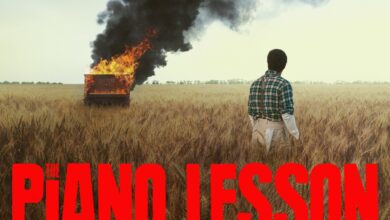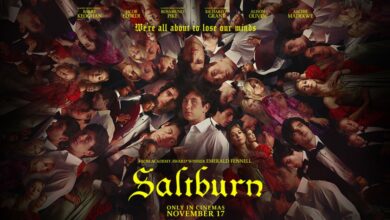The Holdovers Movie Review: A Film In Which He Often Laughs, Of Course, But Always In Some Way To Hide The Misery
Cast: Paul Giamatti, Dominic Sessa, Da’Vine Joy Randolph, Carrie Preston, Tate Donovan
Director: Alexander Payne
Where We Watched: At A Press Preview
Filmyhype.com Ratings: 4/5
The Holdovers is part of a cinematographic year of great quantity and quality, which marked the return of the public to cinemas after Covid 19 had led to the assumption of a total contraction of the market and cinema as we knew it. Paul Giamatti is the incredible and intense star of this bittersweet comedy, a sort of mix between training film and school drama, where he plays the role of one of the most annoying yet iconic teachers we’ve ever seen. Beyond the awards and the unanimous acclaim of critics and audiences, it is an important film because it talks to us about the ability to move forward, about altruism, and about the importance of putting ourselves in the shoes of those around us. The film distributed by Universal Pictures, in theaters from January 18, is a hymn to life, with all its difficulties. It’s a “feel-good movie”, one of those films that makes you feel good even if you shed a few tears.
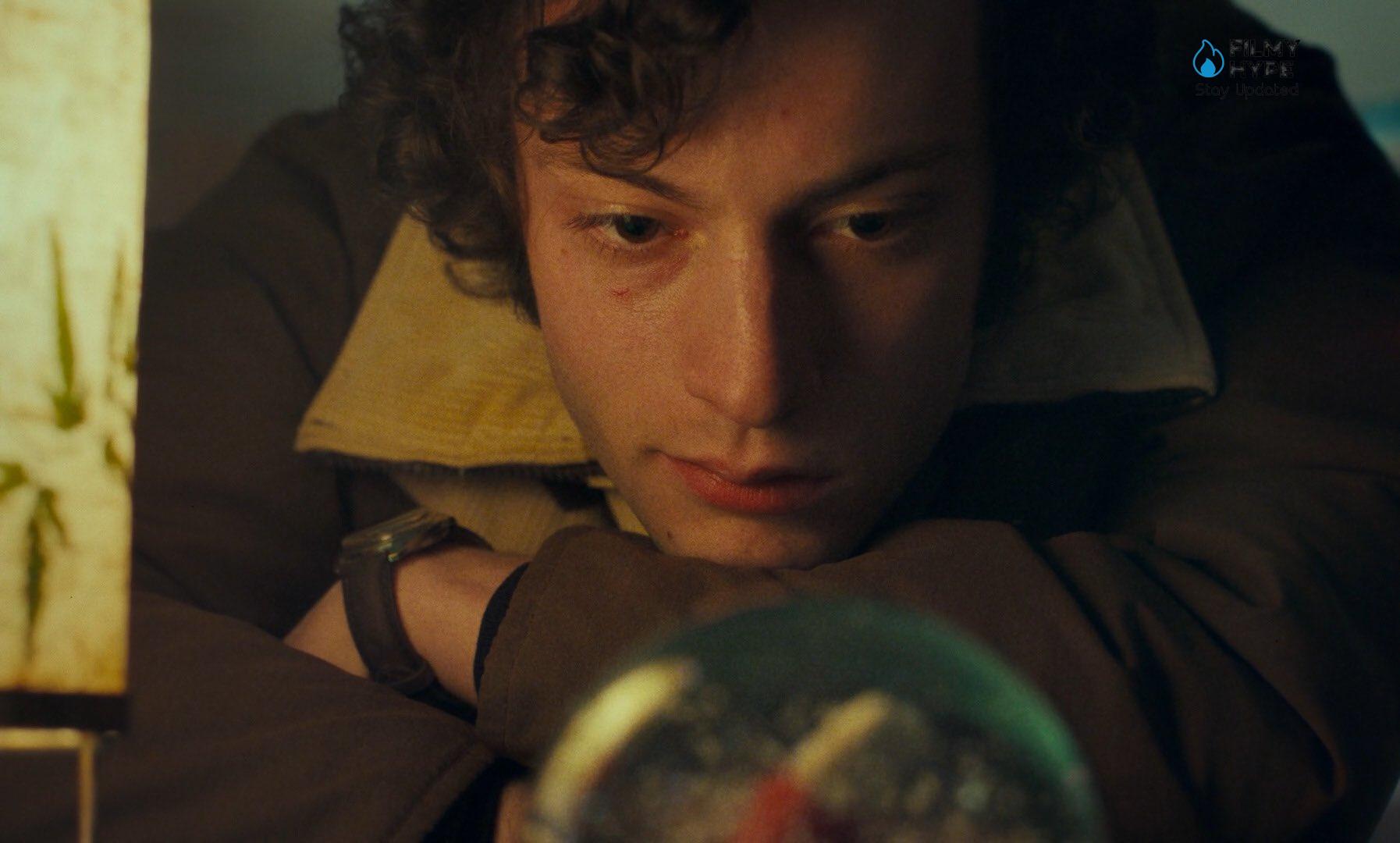
And it has all the potential to become a new Christmas classic, so much so that it makes us regret the choice to distribute it in theaters after the holidays. The Christmas holidays are not always a moment of joy and aggregation. They can also turn out to be the time of year when you feel most alone, or even worse, abandoned. In which one must necessarily deal with one’s own small, and large personal tragedies, and face the pain of loss, and lack of remorse. Especially if the year is 1970, amid the Vietnam War, and the setting is a snowy high school in the Northeast of the United States. There is more humanity in The Holdovers than in all the mainstream cinema seen in recent months. And let’s not talk about those characters who lift your spirit, who through their narrative arc push you to want to become the best part of yourself. This is not the cinema of Alexander Payne.
The Holdovers Movie Review: The Story Plot
New England, 1970. Paul Hunham (Paul Giamatti) is an unpopular classics teacher at Barton Academy who is entrusted with the task of supervising the four students who will remain at the boarding school during the Christmas holidays. Also joining them is Angus Tully (Dominic Sessa), an intelligent but rebellious boy forced at the last minute to stay in school after his mother decides to go on a honeymoon with her new husband. Left alone with the five teenagers and Mary Lamb (Da’Vine Joy Randolph), the cook who recently lost her son in Vietnam, Paul strictly regulates the students’ days, making himself even more unpopular. A few days after the start of the holidays, the parents of one of the five detainees come to take their son back and offer to take the other students on holiday with them, but since Angus’ mother is unreachable the teenager is forced to stay alone at Barton with Paul and Mary. All three will learn to bond, one way or another.
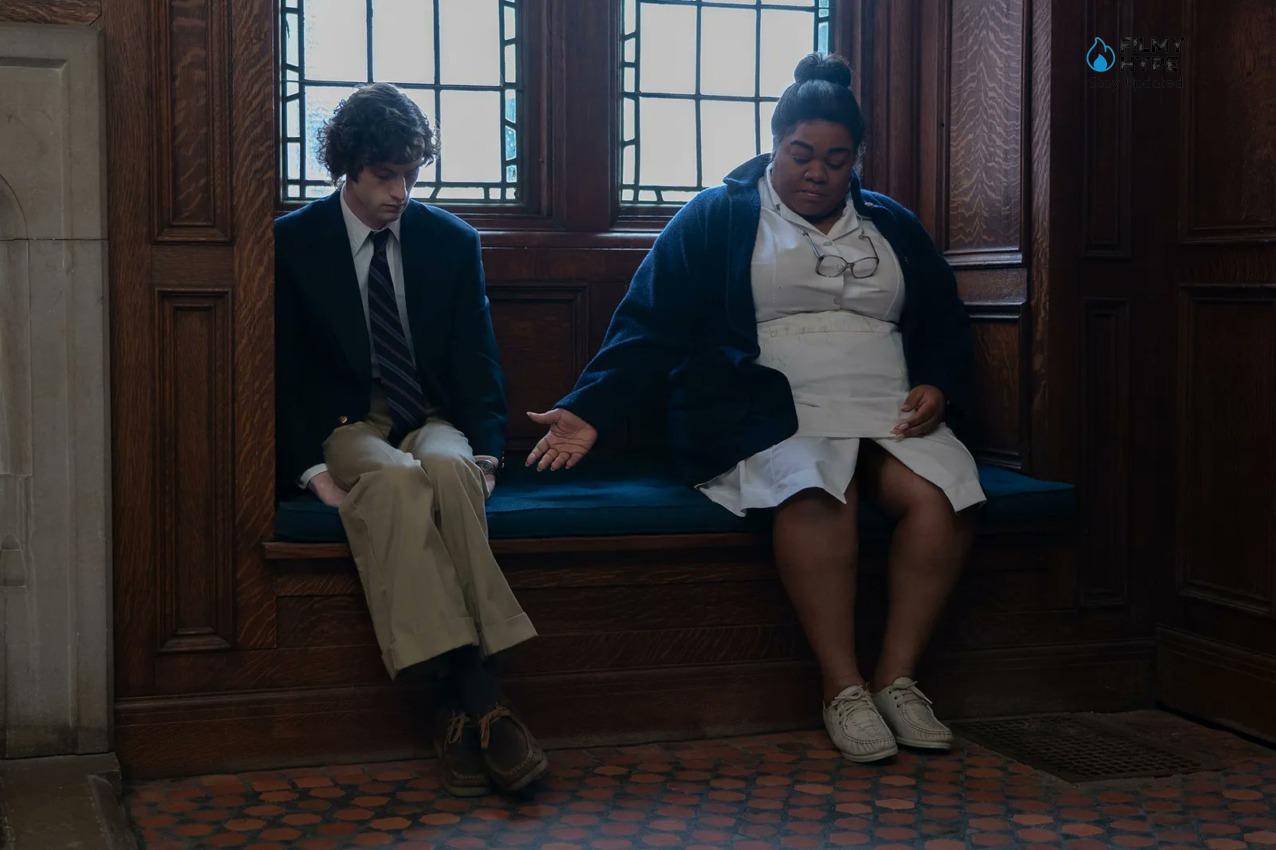
The Holdovers is an object straight from the past. We understand this from the very first seconds, when the old 70s Universal Pictures logo stands out over the opening credits, accompanied by the noises and screeches of film in the projector and the cheesy notes of a Christmas song of the period. Perfect background for a snowy and sleepy faculty just outside Boston, populated by children and teenagers from wealthy families about to spend ten days of vacation outside the school walls. A family reunion which however will not be foreseen due to the triangulation of characters that give life to the warm return behind the camera for Alexander Payne. After the semi-flop of Downsizing, he created perhaps one of his best products behind the camera.
The Holdovers Movie Review and Analysis
The strength of the screenplay written by David Hemingson lies in showing, with the right dramatic progression, the people behind the mask, behind the armor that they have more or less consciously built for themselves over time. In The Holdovers therefore there is no turning point or cathartic moment in which the spectator witnesses the “unveiling” of humanity. On the contrary, we are instead encouraged to experience firsthand the intimate and painful revelation of quiet desperation, of daily pain. In this way the truth of the characters arises in the same way from their merits as from their shortcomings, to form a jagged picture of chiaroscuro figures with which it becomes impossible not to share feelings, both the purest ones and the decidedly less noble ones.
As always, Payne knows how to make the most of the scripts he works on, supporting the dialogues with precise but never suffocating staging. And as always the direction of the actors is excellent: Paul Giamatti gives the filmmaker a superb performance, which in many ways comes close to the extraordinary one in Sideways and at the same time belies it. His Paul Hunham, unlike Miles, presents himself as a “fixed type” that the actor must somehow “unhinge”, exposing one part at a time until reconstructing him as a human being. Next to him, the debutant Dominic Sessa surprises as an energetic, vital counterpart to the dogmatic teacher. Together they form a couple that tells the story of the clash between age, power, and a vision of the world that is truly difficult to forget.
If it weren’t for the last quarter of an hour that channels the film into perhaps slightly predictable tracks, The Holdovers would be a film with top marks for the power of the emotional narrative and the clarity of the cinematic vision. After the perhaps not false but still more uncertain step of Downsizing, Alexander Payne has returned to the levels he deserves with a drama of undoubted depth. A film in which we laugh often, of course, but always in some way to hide the misery, to take away that pain of living even just another day. Because the most painful characters ultimately can’t do anything but live one day at a time…
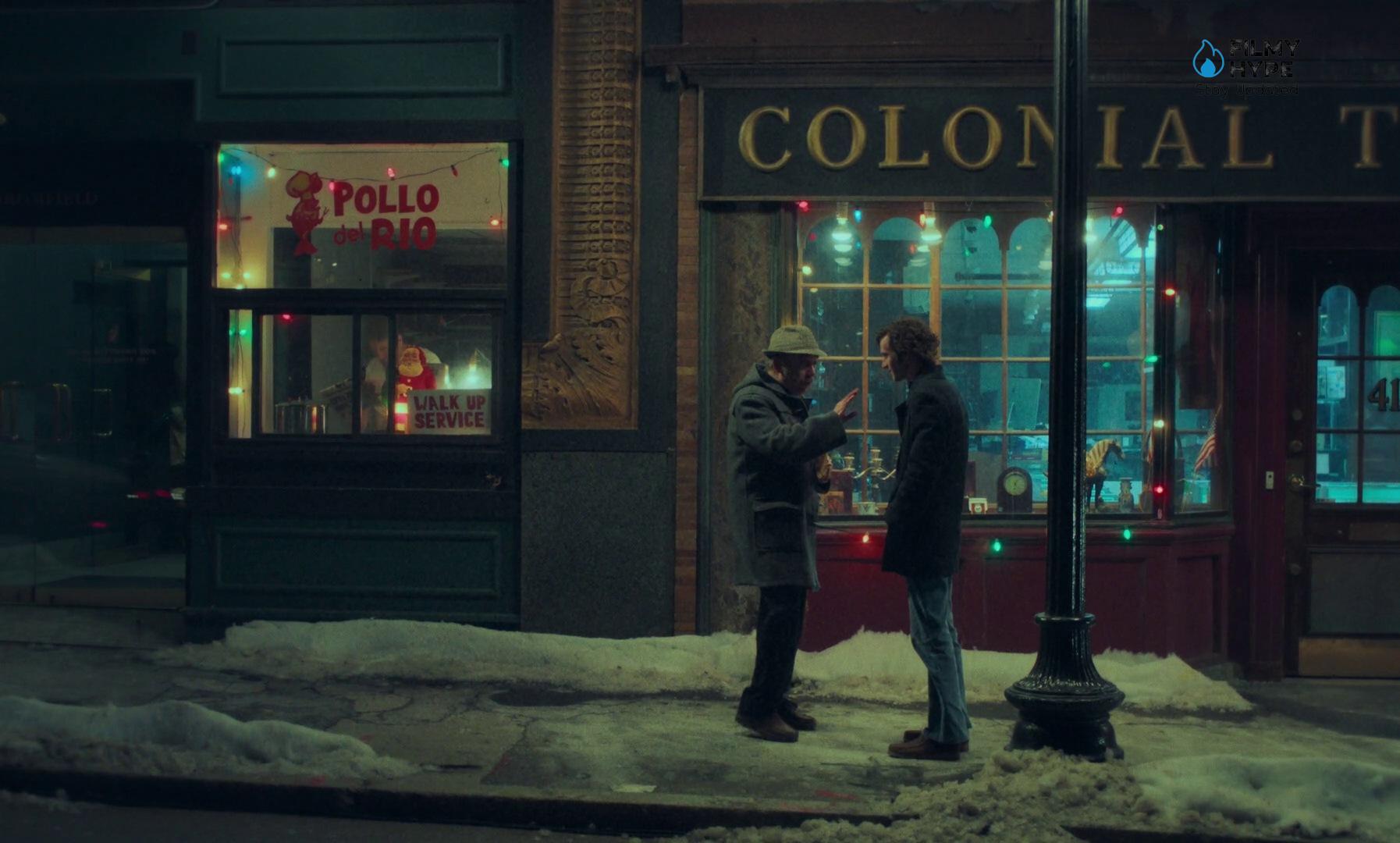
In the past, cinema has often told us about the intense and profound relationship that a teacher or mentor can have with their students. If Dead Poets Society with Robin Williams remains unsurpassed and undefeated today, The Holdovers, however, plays its cards with enormous credibility and coherence. Paul Giamatti gives us a magnificent interpretation of an intractable, gruff man who almost enjoys being hated by everything and everyone. But as always happens, as we move forward we realize that it is a mask, or rather an armor, built for the fear of suffering, for a past made up of injustices suffered and an inability to express their feelings which makes him, in reality, very similar to that strange boy to whom he has to act as a nurse. The chemistry between Giamatti and Sassa is magnificent, they give us the mirror image of the same character, the outcast by choice, as if they were the representation of two different moments of the same life.
Acting as the trait d’union is an equally convincing Da’Vine Joy Randolph, the softest, most sensitive, and warmest part of a trio in which she plays the role of contact with the world of feelings, with this humble, intelligent, tender, and hardworking. The Holdover is a perfect mediation between the authorship of a distinguishable narrator and a story that is universal in impact and message, all the more useful in times like these, where the generational distance has become increasingly clear. However, the film also knows how to make people laugh, without giving up on delving deeper into its characters, how each will change the other for the better, and how we often judge others by mere appearances. In this, The Holdovers becomes, above all, thanks to Paul Giamatti, a great homage to those who are different from the norm, the fearless people who decide to go down a different path, with all the cons of the case. The rebels, the real rebels, are like Paul and Angus, they are those who inside do not accept conformity, who know very well that “society” is a merciless jungle.
We talked about how The Holdovers is a wonderful film that doesn’t need to resort to special effects. All he needs is a narrative sophistication with a few equals, capable of enclosing in just over two hours the very meaning of life, of the difficulties of human beings. But he manages to do it with irony and sarcasm because first and foremost it is an irresistible comedy film. A dramedy, to be more precise, capable of making you laugh uncontrollably and immediately afterward making you reflect on the meaning of existence, on loneliness, on loss, and also on love. Love is understood in all its facets, but above all platonic, fraternal, and maternal. The Holdovers reminds us that we all need love. That under every impenetrable armor hides a simple soul in need of affection. A comfort that can be found in those we least expect. Because even the seemingly most different people are profoundly similar, as in the case of Paul and Angus.
A film like The Holdovers is largely based on its superb screenplay, which perfectly blends comedy and drama. But a great screenplay can remain anonymous if it is not supported by everything that surrounds it. Luckily, that’s not the case with The Holdovers. The work done to recreate the ’70s works wonderfully, both in terms of production and directorial choices. Payne’s touch is felt and elevates The Holdovers to a great film. But what makes it unmissable are the actors’ performances. Paul Giamatti is incredible, one of his most memorable performances which has already earned him numerous awards, including the Golden Globe. We’re not going to sit here and compare him to his awards season rival, Cillian Murphy, who we loved in Oppenheimer. However, we invite you to see The Holdovers in the original language to appreciate Giamatti’s sensational and meticulous work.
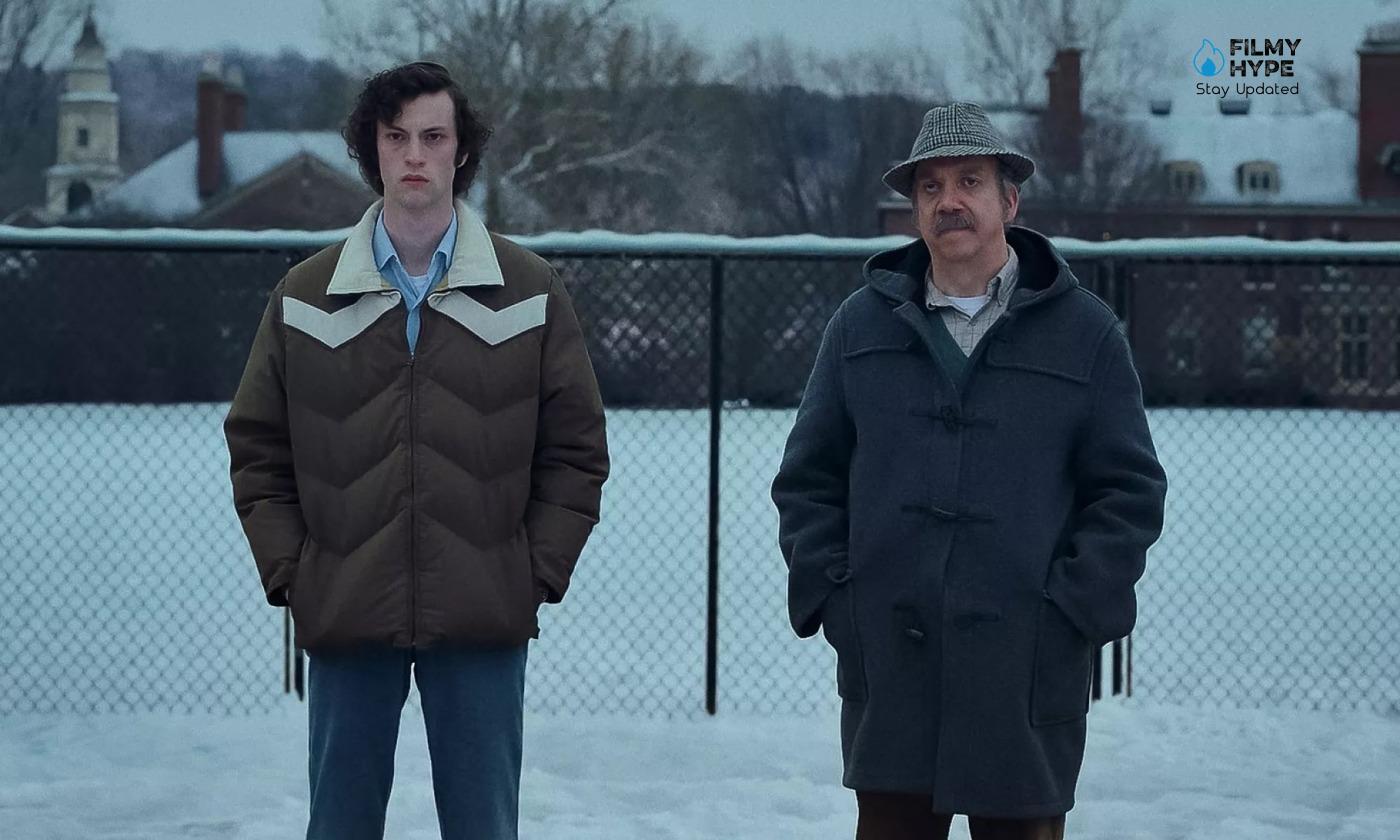
The one who seems to already have the Oscar in her grasp is Da’Vine Joy Randolph. Her interpretation of a mother devastated by grief is profound and touching, her impact is felt and manages to reach the viewer. Finally, the very young Dominic Sessa must not be overshadowed, who on his very first try on the big screen manages to keep up with a sacred monster like Giamatti and is fully convinced. A trio capable of putting together formidable performances, best characterizing three simple but complex characters. An invaluable added value for a film that, just like its protagonists, deserves all the love in the world. Let’s start with the age-old question linked to Alexander Payne’s new film: Is The Holdovers a Christmas film? Yes and no.
It is because the original screenplay edited by the caustic David Hemingson immerses its three protagonists in an old-fashioned and rarefied Christmas atmosphere, forcing its narrative pawns not only to spend the snowy end-of-year holidays together but to deal with their traumatic pasts and with the present time, with their hardships and hopes for the future. A triangulation of content that encompasses all the meaning (and bursting force) of The Holdovers, divided into three extraordinarily complicated celluloid characters. At the same time, the new film directed by Oscar winner Alexander Payne very intelligently overturns the narrative cliché of the Christmas Movie, adopting highly effective narratological solutions in which the founding elements of the festive sub-genre (the soundtrack exquisitely set to classics and alienating covers of the Christmas period of yesterday and today, decorated trees, gifts and laid tables) are transformed by Hemingson’s pen and Payne’s directorial eye into a ploy to tell something else entirely.
As we had previously anticipated, The Holdovers is only apparently a glittering and nostalgic Christmas confection with good feelings, to which it prefers a genuine and moving psychological excavation of its “trinity” of protagonists, among spirits of the past (those, only supported by a more analytical reading of the film) and profound loneliness. So, what holiday better than Christmas manages every year in its centuries-old tradition to celebrate and elevate the concept and values of family unity, empathy, and compassion towards others? All vital parameters dangerously fugitive in the lives of the three protagonists: starting from the gruff and cynical professor played by Paul Giamatti, passing through the problematic teenager “abandoned” by the mother of the debutant Dominic Sessa, up to the silent and sorrowful head chef of the academy in mourning for the son, with the face of Da’Vine Joy Randolph.
All three in heartbreaking escape from a past of great suffering, from a present time of painful configuration (that of the libertine 70s in America), and from a future horizon of cynical uncertainty. The Holdovers has also often been compared (or at least, inserted as a new paradigm) to the great cinema of the past focused on the complex and conflictual relationship between teachers and new generations; but don’t call it Dead Poets Society. Alexander Payne’s new film was also capable of breaking down this narrative carelessness, giving contemporary audiences a cinematic tale of tired and ankylosed souls desperately searching for love and understanding. Lessons (of life) that the protagonists of the film will soon learn, between forced cohabitations and sudden outbursts of vitalistic human compassion.
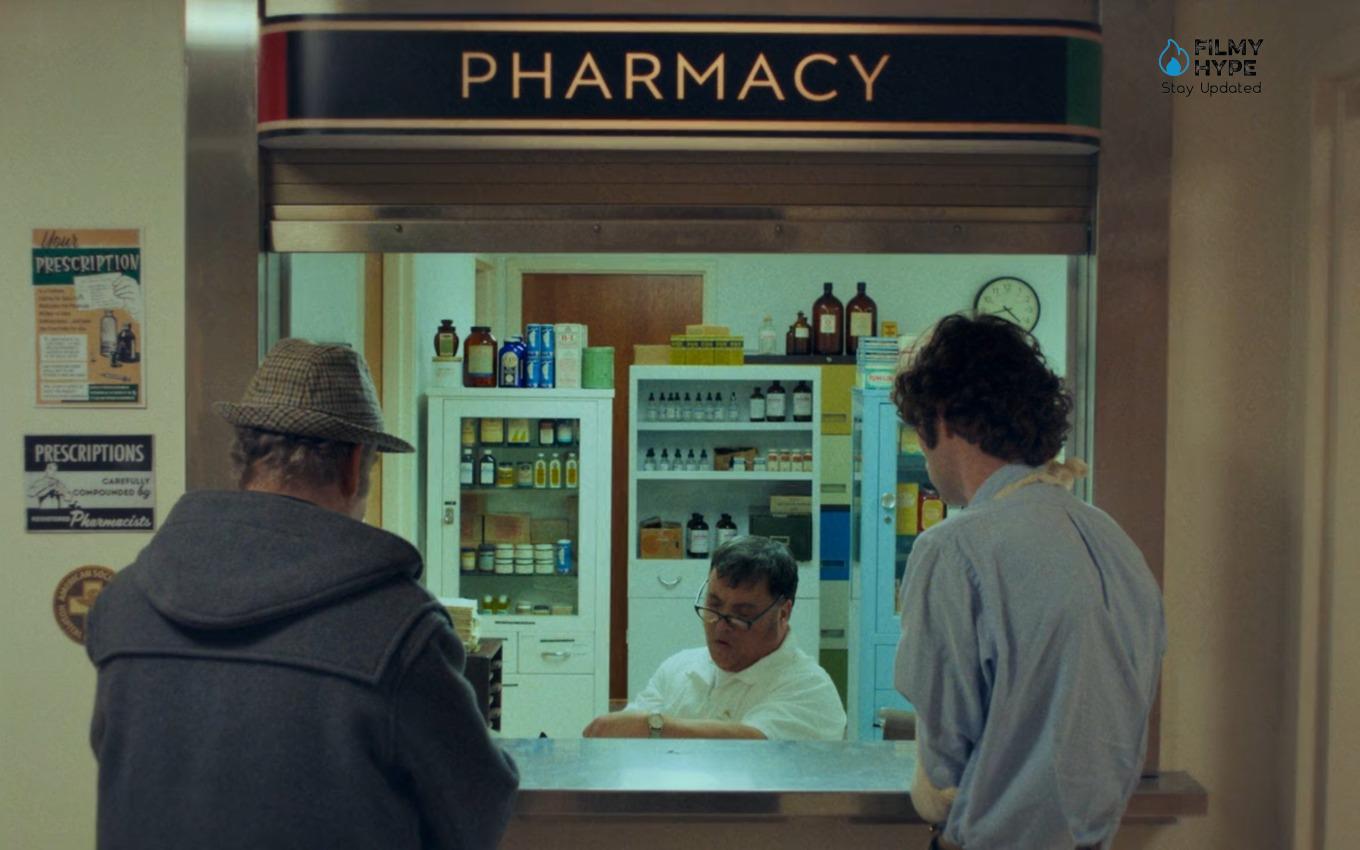
Elements in the screenplay that would certainly not have been possible to bring to the big screen with such honest effectiveness if Payne and Hemingson had not chosen a triptych of exceptional actors. And therefore, The Holdovers is an unmissable cinema not only for the volcanic talent in the progress of the young Dominic Sessa or for the extraordinary dramatic skills of Da’Vine Joy Randolph but also above all for the return in front of the camera of Paul Giamatti perhaps with the best film role of his exceptionally varied career as a character actor. After 19 years from the public and critical success of Sideways, Giamatti reunites with Alexander Payne to finally give life to one of the best American cinematographic products of 2023, rightly a super-candidate during the current awards season and already winner of 2 very prestigious Golden Globes, awarded respectively to the American actor and to supporting Randolph. The victory that Paul Giamatti celebrated in his way, with a fast-food dinner and, a statuette on the table, waiting, perhaps, for a first, well-deserved Oscar.
The Holdovers Movie Review: The Last Words
Alexander Payne creates a little jewel destined to become a new Christmas classic. The Holdovers is a heart-warming film, a real-life lesson that can count on an impeccable screenplay, in which irony and sarcasm blend with the more dramatic elements. The writing is supported by an excellent stylistic and directorial imprint, in addition to the memorable performances of the three protagonists, including a formidable Paul Giamatti. The new film directed by Alexander Payne sweeps away the cynicism that had characterized the films and characters of his career as a director, creating an unprecedented Christmas Movie capable of warming the hardest hearts. Reflecting on themes such as loneliness, the traumas of the past, and the changing America of the 1970s. An unmissable gem.


